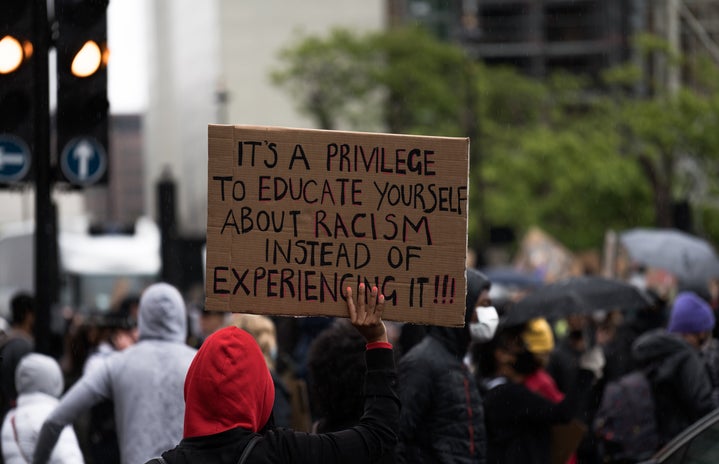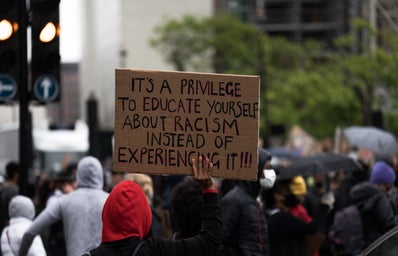At the start of the school year, students returned to campus preparing to battle two pandemics: COVID-19 and racism. The continuous killings of Black people across America brought discomfort to our community and served as a wake-up call for change.
In response to the racism within our country, the University of Florida created a diversity, equity and inclusion training course with the intent of educating its students and faculty on racial bias. The goal is to have members of the community reflect on their identity and become aware of any biases in order to create a more inclusive and respectful environment.
“Hate, bias, discrimination and racism have no place at the University of Florida,” states Dr. D’Andra Mull, the Vice President for Student Affairs.
A link to the course can be found in an email sent to all UF students. Access to the training course opened up on January 25, and the course must be completed by April 1, 2021.
The course should take only about 45 minutes to an hour to complete. All current UF students must participate in this training course.
In addition to the diversity, equity and inclusion training course, UF is taking further steps to promote the education of racism and bias. For this academic school year, faculty members have integrated topics such as the Black experience, racism and inequity into the curriculum to bring awareness of these issues at UF.
The UF Multicultural and Diversity Affairs department and UF Human Resources department are launching a series of webinars this semester that focus on raising awareness, building capacity and promoting action against racism.
At the beginning of the spring semester, the University of Florida awarded faculty members nearly $1 million to fund research projects on racial inequality, diversity and anti-racism in the professional environment.
“We expect these projects to be catalysts for wider interdisciplinary efforts underway to diversify our faculty, understand implicit bias and remove barriers to success,” says UF Chief Diversity Officer Antonio Farias.
In terms of representation, the University of Florida pledges to intensify recruiting people of color as employees and faculty.
According to UF diversity statistics from 2019, only about 32.97% of the University of Florida full-time faculty member population are people of color. About 71.61% of full-time staff members are people of color. 50.63% of all staff members classify themselves as non-resident aliens.
UF policies on hiring, developing, and training will be examined and evaluated by data and national benchmarking with a diversity scorecard. The goal for completion is the 2021-22 academic year.
Furthermore, the University of Florida is acknowledging its history of racism in order to allow for positive change.
On August 24, 2020, the General William Loring monument was moved to private property as a result of UF removing monuments or namings that celebrate the Confederacy and its leaders.
Due to the racist imagery associated with the phrase “Gator Bait,” the University Athletic Association and the Gator marching band stopped using the cheer.
As of fall 2020, the UF Institute of Food and Agricultural Sciences discontinued using prison or jail inmates to provide farm labor. They now use paid labor to support research and teaching programs.
“A rigorous examination of the past is critical to future action,” affirms UF’s website for its anti-racism initiatives.
As you work through the diversity, equity and inclusion training course, remember to keep an open mind and a positive headspace.
Reflect on your identity. Explore the elements that influence who you are — including the negative aspects.
It is easy to feel overwhelmed, helpless and angry when dealing with issues of racism and injustice.
The purpose of the course is to further educate yourself on these topics and how to deal with these issues. Allow it to expand your views and mindset on certain matters.
Become aware of your biases, and learn how to overcome them. The next step after training yourself is changing your behavior. Become an ally and actively do your part in creating an anti-racist environment.


